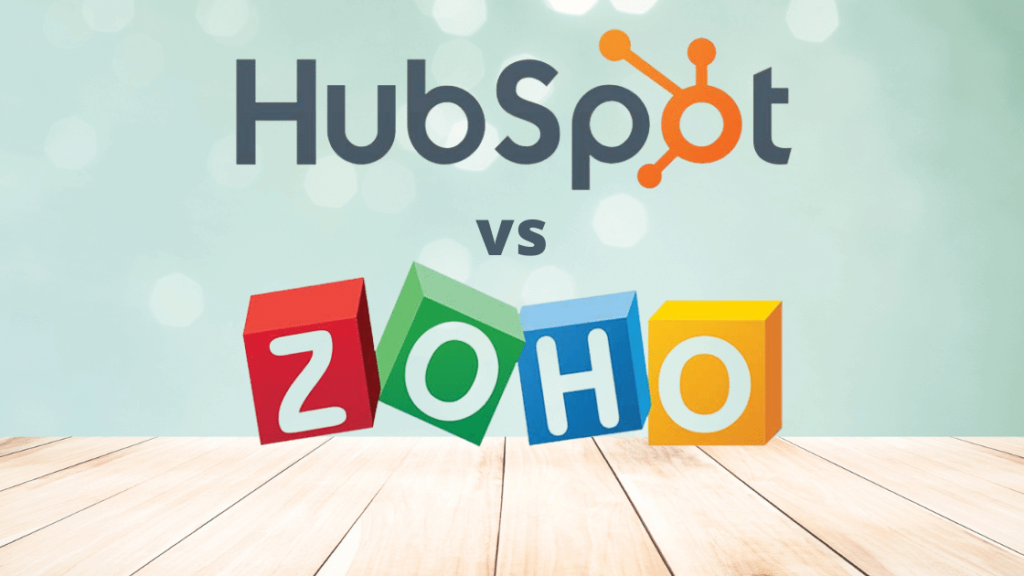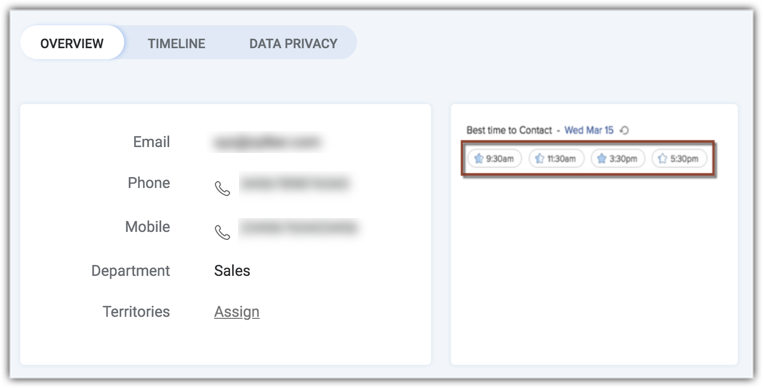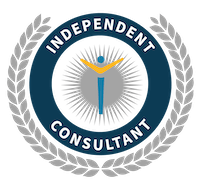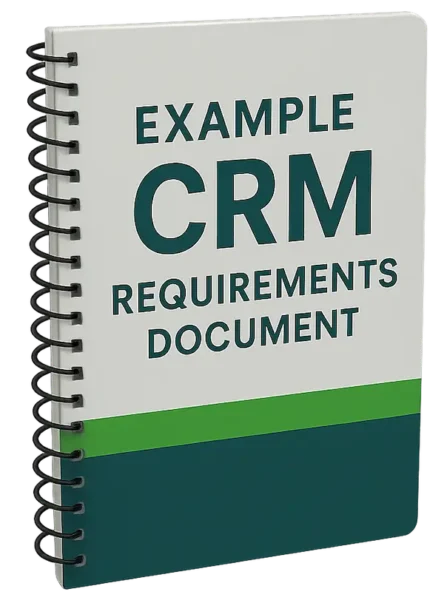With over 600 Customer Relationship Management (CRM) software solutions on the market today, the options are overwhelming. Every vendor tries to prove why they’re the best option with the most innovative features, integrations, and workflows.
Many SMBs struggle with the right time to move to a more sophisticated system. Often, price and ease of use are at the top of the list of priorities when choosing the right CRM software vendor. Two names that come up frequently are Zoho and HubSpot.

Zoho CRM has historically been used by smaller businesses, while more midsize to enterprise-level companies have opted for HubSpot. HubSpot is well known as an inbound marketing tool (Marketing Hub). In recent years, HubSpot has expanded to offer a sales-focused CRM tool (Sales Hub). While HubSpot Sales Hub provides many features and a free plan, additional costs and limitations exist.
Regardless of your business or industry, CRMs are traditionally challenging to implement, difficult to learn, and troublesome to add to your daily routine. CRM vendors are continuously evolving to be more user-friendly and cost-effective.
Here is a look at how these two vendors stack up. We’ll compare HubSpot Sales Hub Starter, Professional and Enterprise plans, and Zoho’s Professional and Enterprise plans in nine key areas—price, sales force automation, customization, automation, and process management, predictions and AI, reports and analytics, social, marketing automation, and data and security administration.
Pricing: Zoho vs HubSpot
HubSpot offers a “Free Forever” plan for unlimited users. While on the surface, this sounds like an ideal plan, there are many factors to consider. You can store up to a million contacts, integrate with Gmail/Outlook, and have access to some sales productivity tools like email and meeting scheduling.
But while you have access to all of these great features, they’re limited. For example, you can only have five email templates, five documents, and one meeting scheduling link (which does not allow for customization or embedding). Most companies will need many more email templates, documents, and want a unique meeting link for their whole team, not just one user. So the free plan can only last for so long. Hubspot Sales Starter is $50/mo and includes 2 users.
Zoho’s Professional version is the most popular and is available for just $20/mo per user. It includes almost all of the features a small business requires. There is an Enterprise version available at $35 /mo per user for larger organizations requiring unlimited reports, dashboards, etc.
Sales Automation
Both Zoho and HubSpot provide standard sales modules (or objects) such as leads, contacts, accounts, and deals. Both also offer the ability to log and track tasks, events, calls, and notes to unique records within the system. Both offer sales forecasting capabilities and email insights such as opens, clicks, and bounces. The differences start to show in the advanced features such as number of currencies, scoring rules, and assignment rules.
Customization
Customization can be vital to the success of your system. You have to be able to customize the platform to fully match your business processes. Both vendors offer the ability to customize pages, fields, modules, and rename tabs. Zoho has a bit of an edge here by providing the power of picklist history tracking and custom links, while HubSpot either doesn’t or requires the enterprise plan.
Automation and Process Management
Lack of user adoption is one of the top reasons CRM implementation projects fail. One way to increase user adoption is through automation. Using workflow rules to reduce the amount of manual entry required and implementing approvals to improve team efficiencies will take the guesswork out of your business processes.
For instance, a useful workflow might be: IF a contact does not respond to a salesperson’s email message within 7 days THEN the system automatically creates a task for the salesperson to follow up.
Another common need is to require certain transactions to go through approval from a senior decision-maker. For example, a sales rep may offer a large discount to a customer. With the Approval Process function, you can set up these controls and streamline your business operations. Zoho is the winner in that it offers all of these features at a much lower monthly price.
Predictions and AI
This report suggests that CRM processes linked with AI will push the global business revenue by up to $1.1 trillion by the end of the year 2021.
Zoho offers a unique feature called “best time to contact.” Zia (Zoho’s AI assistant) will look at various factors like when a contact opens your emails, answers your calls, or responds to surveys.

Zia takes this information and suggests the best time to contact that person. With this information, you are increasing your chances of reaching them and having a more productive conversation. No other vendor, to my knowledge, offers this feature. Workflow suggestions can improve your team’s efficiency—if your team performs the same task repeatedly, Zia will suggest a workflow to automate this for you.
Reports and Analytics
A significant benefit of a CRM system compared to the use of spreadsheets is the reporting, analytics, and dashboards you get with a CRM. Both Zoho and HubSpot come with standard reports and dashboards. Some limitations come into play with HubSpot regarding custom reports and dashboards. Zoho offers unlimited custom reporting and dashboards, while HubSpot allows for a limited number of these with more allotted as you move up in packages.
Social Integration
Social CRM represents an integration between CRM and social media platforms such as Facebook, Instagram, or Twitter. This improves a business’s communication with customers and anticipates their needs. Integrating this information will mean better customer service and the ability to gather market insights from your customers directly.
HubSpot does not currently offer any social media support at this time. Zoho offers the power to link your accounts, contacts and leads with their Twitter and Facebook profiles. This brings your company’s social media activity into the social tab.
Marketing Automation
HubSpot is a powerful marketing tool. However, for access to features such as SEO, email marketing, and landing pages, HubSpot Marketing Hub is required. Marketing Hub is a separate cost from the Sales Hub The Professional level starts at $800/month and includes 2,000 contacts. With Marketing Hub, you lose the one-million contact limit and start paying for every 1,000 contacts in your system. On the other hand, Zoho’s Professional plan offers unlimited email templates, marketing campaigns, autoresponders, and web-to-lead forms.
Data and Security Administration
Protecting the data in your CRM should be one of your main priorities. This system houses sensitive contact information such as phone numbers, addresses, and sometimes credit card and social security numbers.
Roles and profile hierarchy is one layer of protection as well as field-level security. Roles and profiles give your users access to the data within your system and if they can edit, import, or export that data. Data backups are a great feature to ensure you never lose any of this critical business data. Zoho offers two backups every month, while HubSpot doesn’t offer any.
Which CRM is Best for You?
Zoho is often a strong contender for small businesses when you factor in cost and features. Zoho has a more robust feature set. A few things you can only do with Zoho CRM include: creating personalized customer journeys and analyzing the performance of the processes involved, pulling up critical reports and data using voice commands, and making branded self-service e-catalogs for your customers.
Zoho provides access to email, live chat, and phone support free of charge for users on all paid editions. Working with an authorized Zoho Partner will give you additional support. HubSpot offers email and in-app support options across all paid editions. However, phone support is only available to Professional and Enterprise edition customers.



